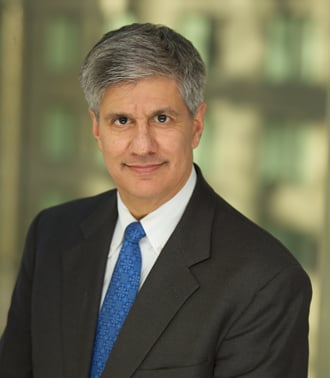Seventh Circuit Weighs in on AKS/FCA Causation Standard Debate
Earlier this month, the Seventh Circuit issued an opinion addressing a few issues of note for our Qui Notes readers, including the circuit split on the causation standard for a False Claims Act (FCA) claim based on an alleged kickback, as well as the Eighth Amendment’s application to FCA monetary judgments. The Seventh Circuit’s opinion in Stop Illinois Health Care Fraud v. Sayeed is particularly interesting because of the case’s long history — last week’s decision comes on the heels of not one but two bench trials, and this was not Sayeed’s first trip to the Seventh Circuit — and also because the causation question arises after trial regarding the proper amount of damages.
Sayeed involves a claim of illegal referrals under the Anti-Kickback Statute (AKS) where one of the defendants entered into a management services contract with the Healthcare Consortium of Illinois (the Consortium), a non-government organization that referred low-income seniors for home health care. To place seniors with health care providers, the Consortium maintained a list of approved providers, including defendants, and rotated through that list when making referrals. Plaintiffs contended that defendants also obtained patients through the services contract, improperly accessing and mining patient data to identify Medicare patients to solicit for home health services.
After the first bench trial, the district court entered a directed verdict for defendants holding that because defendants had paid the Consortium to obtain information, not direct patient referrals, their conduct had not violated the AKS or FCA. On appeal, the Seventh Circuit reversed and remanded, holding that the definition of referral is “broad, encapsulating both direct and indirect means of connecting a patient with a provider.” 957 F.3d at 750. At the second bench trial, the court found defendants liable, trebling damages and adding penalties of $5,500 per claim. The court calculated damages based on all Medicare claims submitted by defendants for Consortium patients after the management services agreement, regardless of whether the patients were referred to defendants through the Consortium’s ordinary rotational process. The district court explained that even if some referrals from the Consortium to defendants had occurred through that process, the “unique relationship” created by the management agreement had “pervaded” those referrals and transformed otherwise lawful claims into false ones.
If the district court’s approach to damages strikes you as overbroad and falling short of the AKS and FCA’s causation requirement, you’re in good company. When the case went up on appeal once again, the Seventh Circuit rejected the district court’s logic, stressing that, by statute, for a claim to be false under the FCA, each specific claim must “result from” a kickback. The Seventh Circuit remanded with specific instructions that the district court should reevaluate and exclude any lawfully referred patients from its damages and penalties calculations because those claims could not be causally connected to the AKS violation.
Regular Qui Notes readers will recall that the Sixth and Eighth Circuits have found that the FCA requires actual or but-for causation, whereas the Third Circuit has embraced a more permissive standard (covered by Qui Notes in August 2022 and April 2023; we’ve also been tracking lower court rulings). The First Circuit is set to weigh in on the issue later this year. Notably, the Seventh Circuit stated that it did not have to decide whether but-for causation applied because it was clear that patients obtained through the rotational referral process were not causally connected to the data mining scheme, while all other patients for whom defendants billed for services were causally connected. The court rejected the theory often argued by the government that all claims following a kickback are false, stating “[t]hat broad suggestion — that every claim for payment following an anti-kickback violation is automatically false regardless of its origin — is inconsistent with section 1320a-7b(g)’s directive that a false claim must ‘result[] from an unlawful kickback.’”
Further, although the Seventh Circuit did not take a side on the but-for causation debate, it is clear that it imposed a more demanding causation standard than that advocated by the government, which has said that under an “implied certification” theory all claims that follow a kickback are false. While not explicitly mentioning that theory, the court implicitly rejected it by finding that claims defendant submitted through the ordinary-course referral process were not false. The Seventh Circuit was not persuaded that the data mining scheme “tainted” every claim coming from these defendants — a good sign that plaintiffs in the Seventh Circuit will need to provide some hard evidence of actual causation.
Although its causation ruling is the main headline coming out of Sayeed, the Seventh Circuit’s opinion also briefly addressed defendants’ argument that the nearly US$6 million judgment was unconstitutionally excessive under the Eighth Amendment. While expressing skepticism that the Eighth Amendment applied, the Seventh Circuit declined to weigh in definitively, reasoning that even if FCA judgments fell under the Eighth Amendment’s ambit, the judgment imposed here would pass muster because it was not “grossly disproportional” to the gravity of the defendants’ offenses. The Seventh Circuit’s logic was remarkably similar to that employed by the Eleventh Circuit in Pinellas — essentially, the per-claim penalties had a strong presumption of constitutionality because they were at the lower end of the FCA’s statutory range, and there is no disproportionality because the defendants had repeatedly engaged in unlawful conduct that harmed not only individual patients, but the integrity of the health care system as a whole.
© Arnold & Porter Kaye Scholer LLP 2024 All Rights Reserved. This blog post is intended to be a general summary of the law and does not constitute legal advice. You should consult with counsel to determine applicable legal requirements in a specific fact situation.

